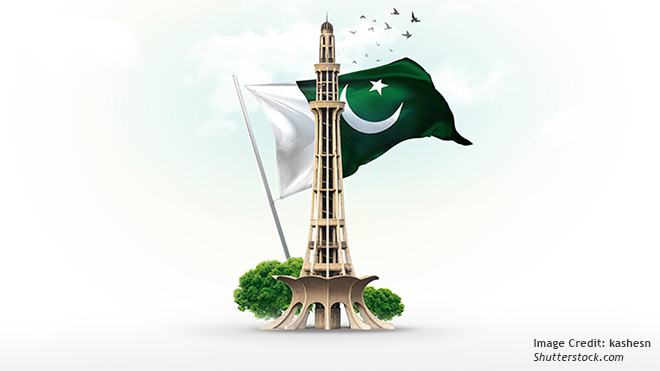SCO Summit: A Boost for Pakistan’s Diplomatic Standing

Pakistan hosted the twenty-third meeting of the Council of Heads of Government of the Shanghai Cooperation Organisation on October 15-16, 2024 in Islamabad. The meeting was held at a time when Pakistan was going through political instability and security threats. Despite these concerns, Islamabad held the SCO summit and hosted leaders from the SCO member-states–—–China, Russia, India, Belarus, Iran, Kazakhstan, Kyrgyz Republic, Tajikistan, and Uzbekistan. Leaders of Mongolia (an observer state) and Turkmenistan also attended the summit.
Instead of Indian Prime Minister Narender Modi who was invited by Pakistan to attend the meeting, India’s Minister of External Affairs Dr. S. Jaishankar led the Indian delegation, the first visit by an Indian External Affairs Minister in nearly a decade. With New Delhi’s participation showing potential for improved ties between the two countries, Islamabad got an opportunity to boost its regional diplomatic standing by hosting the summit.
The SCO – A Regional Organization or an Anti-America Platform?
The SCO was established on June 15, 2001 as the successor of the mechanism of the Shanghai Five founded in 1996. As a permanent intergovernmental international organization, it was founded in Shanghai with China, Russia, Kazakhstan, the Kyrgyz Republic, Tajikistan, and Uzbekistan as its founding members with goals to strengthen trust and encourage cooperation between member-states in order to maintain and ensure regional security, stability, and peace along with promoting a new democratic, rational and fair international economic and political international order.
Even though the SCO is an intergovernmental organization with nine member-states, it is nonetheless considered a platform for Beijing to extend its influence into the Eurasian continent through Central Asia, Iran, Pakistan, and Belarus which is an observer state but in a process of becoming a member-state since 2022. It is believed to be a significant platform for Beijing’s efforts to establish alternatives to the Washington-led international order. On the contrary, some observers believed that China does not want the relationship between the SCO and the U.S. to be unamicable, thus it does not pit the SCO against the international order led by the U.S. However, the growing geopolitical and geo-economic rivalry between Beijing and Washington cannot be doubted.
Pakistan and the SCO
Pakistan was an observer state of the SCO until it became a member along with India in 2017. Becoming a member of the organization gave Pakistan an opportunity to explore better trade cooperation with the member-states in key areas such as investment, trade, energy, connectivity, entrepreneurship, and innovation. Moreover, after becoming a member, Pakistan regularly participates in the joint military drills of the SCO.
The SCO offers a potential platform for Pakistan to promote trade with the member-states, mainly with the Central Asian Republics (CARs). Pakistan could export agricultural and sports products to the CARs and could gain access to their rich natural resources. There is an opportunity for Pakistan to increase its exports to the SCO member-states which currently stands at $3 billion in 2023-2024 against the annual potential of $15 billion. Therefore, Pakistan can utilize its membership status in the SCO to boost its economy.
Hosting the Summit – A Diplomatic Boost for Pakistan
Pakistan is going through political instability and economic crisis which has been coupled with increasing terrorist attacks since the Taliban’s takeover of Kabul in 2021. In such a situation, there were doubts that it would be difficult for Pakistan to host the summit and ensure the safety of the leaders of the member-states. However, Pakistan successfully hosted the summit defying the challenges, and thereby boosting Pakistan’s regional diplomatic standing.
According to Pakistan’s Former Diplomat Maleeha Lodhi, hosting the summit helped Pakistan elevate its diplomatic standing and exhibit that Islamabad is an active player in international multilateral forums. In addition to this, Michael Kugelman said that hosting the summit was a ‘big deal’ for the government of Pakistan. By hosting the summit, Pakistan tried to prove that it was safe for foreigners. He further said that due to the strategic importance of the SCO and the domestic security concerns, there was a lot at stake for Pakistan with this summit.
Moreover, Pakistan’s diplomatic morale was boosted by the attendance of Indian External Affairs Minister Dr. Jaishankar whose visit to Pakistan was the first visit by an External Affairs Minister since 2015 and by any Indian Minister since 2016. However, this rare trip was not meant to strengthen ties with Pakistan but to signify New Delhi’s commitment to the SCO. Dr. Jaishankar took part in different activities with Pakistani officials present but there was no one-on-one meeting between the officials of both countries.
Nevertheless, the rare visit of the Indian Minister showed a degree of stabilization in bilateral ties between Islamabad and New Delhi, thus, igniting hope for improvement in diplomatic relations between the neighboring nuclear states in the days to come.
A Way Forward
In order to cope with its political and economic challenges, Pakistan needs to improve and strengthen its diplomatic standing. This SCO meeting provided the timely impetus for Pakistan to uplift its diplomatic morale, mainly in the Eurasian region.
Therefore, it is imperative that Islamabad make the most of this meeting and engage with the member-states bilaterally improving its trade relations, particularly with India and the CARs. This would consequently improve its export base and overcome its energy shortfall. Moreover, the rare visit of the Indian Minister of External Affairs should be considered a blessing in disguise to re-initiate dialogue with its neighboring country.
The dialogue would bring peace and stability not only in both countries but also in the region. It will, additionally, give rise to economic progress and social development in the South Asian region as regional cooperation is dampened owing to the ongoing rivalry between the two. Thus, it is time to end the era of interrupted dialogue and maintain diplomatic relations for mutual bilateral as well as regional cooperation, peace, and stability. And the success of the SCO Summit provides a good starting point.